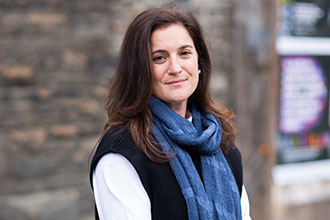Our research changes lives for populations experiencing disadvantage

By Ana Gajic
(May 22, 2020) – More than 130 research teams across Unity Health are examining the biology, prevention, diagnosis, treatment and impact of COVID-19.
To highlight this important work, we’re sharing stories of how our research changes lives for different patient populations. This week, we’re spotlighting two projects at Unity Health’s MAP Centre for Urban Health Solutions that impact populations experiencing disadvantage during the COVID-19 pandemic:
Bringing together 35 researchers to make a difference for communities experiencing disadvantage during the COVID-19 pandemic
Scientists at the MAP Centre for Urban Health Solutions understood as soon as the pandemic was declared that it would present unique issues to the populations they serve.
They began to hear stories of decreased access to important services for their research partners, some of whom are experiencing homelessness, using drugs or alcohol, or living with low incomes.
“Conditions of marginalization are complex and interrelated,” said Dr. Michelle Firestone, a MAP scientist. “These conditions are unfortunately exacerbated during the COVID-19 pandemic, which brought with it rapid change such as economic loss, lack of social supports and barriers to accessing services.”
She and Dr. Ahmed Bayoumi, a scientist at MAP who holds the hospital’s Foundation Baxter & Alma Ricard Chair in Inner City Health, came together to do what MAP does best: evaluate and test solutions to complex urban health issues.
They assembled a group of 35 scientists, people experiencing disadvantage and community partners and providers to lead a research project. Their goal is to evaluate how local efforts to respond to the pandemic have impacted people who are marginalized and determine which efforts are working and what could be improved.
“This project builds on longstanding partnerships between MAP scientists and community service providers and decision makers,” said Dr. Firestone. “It extends across diverse communities within our city, reflecting the scope and interdisciplinary research areas that exist within MAP.”
In fact, the project has the most co-investigators Dr. Bayoumi has ever listed on a project, and that is intentional: the 35 investigators want the study’s findings to be as inclusive and accessible as possible.
This project is structured to be a rapid research evaluation and Dr. Bayoumi and Dr. Firestone hope it will quickly help to improve programs and services. In the long term, they hope it will build stronger collaborations between academics and people with lived experience.
“It’s important for us to build bridges across our own silos,” said Dr. Bayoumi, “and this research project is a good place to start.”
Protecting women and children living with domestic violence during the COVID-19 pandemic
Ten per cent of Canadian women are concerned about the potential of violence in their homes during the COVID-19 pandemic, suggests a Statistics Canada report from April 2020. Though cases of intimate partner violence during the pandemic have been hard to track, service providers have reported increased calls for support from families isolated at home.
“COVID-19 has magnified the risk factors associated with intimate partner violence,” said Dr. Patricia O’Campo, Interim Executive Director of the Li Ka Shing Knowledge Institute and scientist at MAP Centre for Urban Health Solutions.
“With millions of jobs lost, closures of services and schools that are often sources of comfort and refuge and added burden on the shelter system, women experiencing intimate partner violence have nowhere to turn.”
Dr. O’Campo has been researching intimate partner violence for more than 25 years. She has pivoted some of her research to address violence that may be occurring during the pandemic.
Before the spread of COVID-19, Dr. O’Campo’s team designed and tested two apps to support women in abusive partnerships: the WITHWomen app, which helps women and their health care providers screen for abusive behaviours; and the Pathways app, which allows women to conduct a danger assessment for themselves and their children and build a personalized safety plan.
“The limitation of these apps is that they don’t have safety planning content tailored to a public health emergency like COVID-19,” Dr. O’Campo said. “For instance, the apps are not meant to be used in close proximity to the perpetrator, and they do present recommendations that may not be appropriate at this time, such as asking someone experiencing intimate partner violence to visit a friend or family member’s house for support.”
She and her co-principal investigator, Dr. Nicholas Metheny, a Post-Doctoral Research Fellow at St. Michael’s, have set out to redesign and test the Pathways app in the context of the pandemic.
Their research will focus on four activities: rapid research around safety planning, including compiling information from and with community agencies and women with lived experience; modification of the Pathways app to swap in content that is pandemic-appropriate; a social media awareness campaign about the apps; and the development of a toolkit to help providers incorporate the app into virtual appointments with those who may be at risk.
“Once we design a COVID-19 relevant version of the Pathways app, our research will be focused on making sure this tool can truly make a difference in people’s lives,” Dr. O’Campo said. “We want women to know they’re not alone, and we want to be able to support them through this difficult time.”
